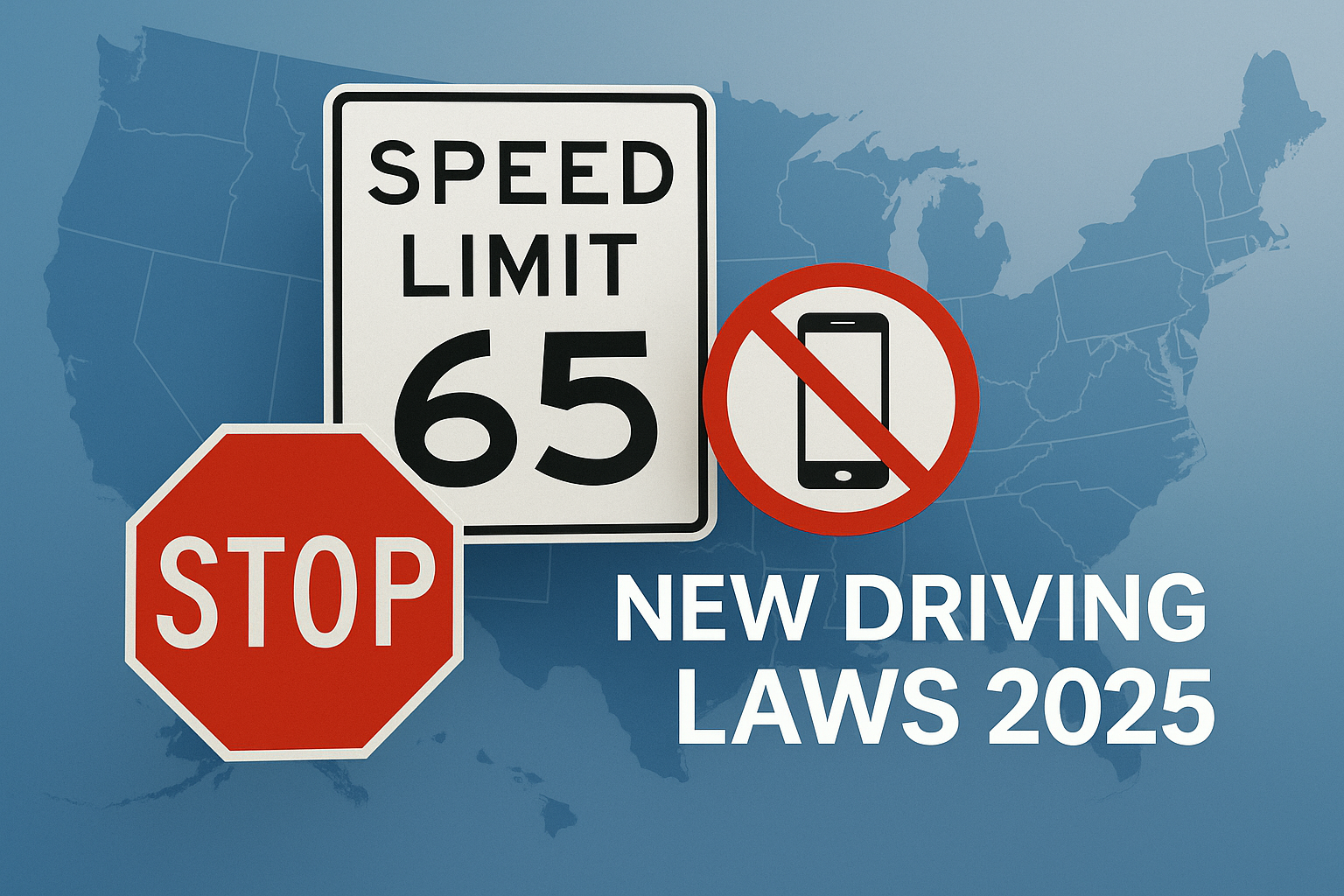New traffic laws across the U.S. are cracking down on reckless driving, school zone violations, and repeat offenses. Here’s what every driver needs to know.
Why This Matters Now
Road safety has become a national concern as crashes linked to excessive speeding, distracted driving, and school zone violations continue to rise. In response, several states are introducing tougher driving laws in 2025. These changes bring higher fines, longer license suspensions, and even the possibility of jail time for serious violations. For everyday drivers, this means that mistakes once treated as minor infractions could now carry life-changing consequences.
New Driving Laws by State
| State | Key Change | Penalty |
|---|---|---|
| Florida | Driving more than 50 mph over the limit or hitting 100 mph+ is now a criminal offense | $500–$1,000 fine, up to 90 days in jail, license suspension |
| Maryland | Speeding 30 mph or more over the limit is now classified as reckless driving | $1,000 fine, up to 60 days in jail |
| Virginia | Commercial drivers face stricter penalties for speeding in work zones | $500–$2,500 fines, license suspensions up to 60 days |
| California | Street takeovers and sideshows are now subject to impoundment and harsher penalties | Vehicle impoundment, heavy fines, possible jail |
| Virginia (Minors) | Vehicle owners can be penalized if unlicensed minors are caught driving | Up to $2,500 fine, possible jail time, license suspension |
| School Zones (Various States) | Passing a stopped school bus may now be automatically enforced by cameras | Fines of $250 or more per violation |
| Washington | Repeat reckless driving offenses now lead to longer suspensions | Higher fines, extended license suspension for repeat offenders |
What’s Changing
The pattern is clear: states are no longer treating high-speed or reckless driving as minor traffic violations. In Florida and Maryland, excessive speeding is now a criminal offense with the potential for jail time. Virginia is tightening rules for commercial drivers, while California is targeting dangerous street takeovers. Technology is also playing a role—school buses in several states now use cameras to ticket violators automatically. Washington is extending suspensions for drivers who repeatedly engage in reckless driving.
Impact on Drivers
For drivers, these laws mean stricter accountability and higher stakes. A single reckless decision—like speeding excessively or passing a stopped school bus—could now lead to a suspended license or even time behind bars. Commercial drivers are especially vulnerable, since losing their license could also mean losing their livelihood. Families should also take note: in some states, parents or guardians could face penalties if they allow unlicensed minors to drive.
The Debate
Supporters of these tougher laws argue they are essential to curb dangerous driving, reduce accidents, and protect pedestrians, especially children around school buses. Critics, however, warn that the penalties may be too harsh, criminalizing drivers who make one mistake and adding financial strain through heavy fines. There are also questions about fairness in automated enforcement, with concerns over whether camera-based tickets give drivers enough opportunity to contest violations.
Frequently Asked Questions
Can speeding really lead to jail time now?
Yes. In states like Florida and Maryland, extreme speeding offenses are treated as crimes that may result in jail time.
What happens if I pass a school bus illegally?
You could be fined at least $250, and in states using cameras, you may be ticketed automatically without being pulled over.
Are these laws the same across the country?
No. Each state sets its own penalties. The examples above apply to specific states, and rules vary widely.
Do commercial drivers face different rules?
Yes. In states like Virginia, CDL holders face stricter penalties than regular drivers for speeding and other violations.
What’s the best way to avoid these penalties?
The safest approach is to stay within speed limits, pay attention in school zones, avoid reckless driving, and ensure your license and insurance are up to date.




